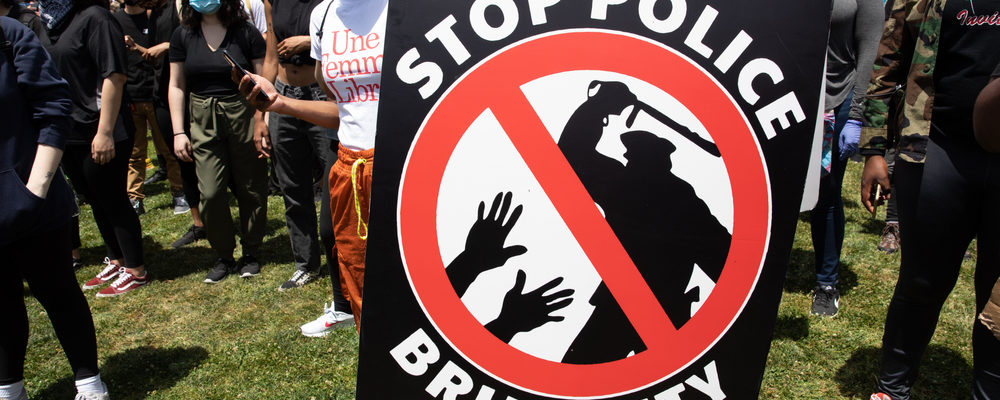Branding guru Professor Mark Ritson has hit out at firms that have backed the Black Lives Matter movement on their social media feeds, but failed to appoint black people to their senior leadership teams.
In a fiery opinion column, Ritson scorns what he perceives to be a self-congratulatory, bubble mentality in the marketing arena, whereby brand managers forget that they’re not viewing the content they produce from the same perspective as the consumers who are receiving it (Marketing Week, 3 June 2020).
“This week,” he writes, “that bubble was all but impossible to ignore. America has been riven by the disgraceful, horrific murder of George Floyd. And bubble-bound marketers have been climbing over themselves to speak out, make a difference, take a stand and generally do the usual socially aware hanky-panky that makes them feel good about themselves while making zero difference to anything or anyone out there in the real world.”
By way of an example, Ritson cites a short, black-and-white web ad with contemporary resonance that emerged from the Twitter feed of Nike, which was subsequently retweeted by Adidas in a show of solidarity.
On the surface, one might think, all well and good. However, Ritson juxtaposes those tweets with screenshots from the Nike and Adidas websites, showing that there are no black people in either firm’s core leadership teams.
Indeed, he writes of Nike: “ Despite focusing on sports that have a significant skew towards African American athletes, despite making much of its North American profit from black consumers, despite signing many of the world’s most famous athletes of colour as spokespeople, its leadership team is about as black as I am.”
Turning to Adidas, he points out: “Once again, its leadership team is just as white-bread as Nike despite also being in a predominantly, or certainly significantly, African American-influenced business. Its own executive board looks like it has just come in from a fun day of golf at an exclusive Scandinavian country club.”
He adds: “We make change by enacting it within our organisations and therefore becoming the exemplars for others. If you care about black lives, you don’t get inspired by an Instagram post. You get inspired by black faces in the boardroom. Companies need to become the change they are tweeting about.”
Do firms that haven’t diversified their senior teams have any right to align themselves with Black Lives Matter in the overwhelmingly superficial realm of branding and advertising?
The Institute of Leadership & Management’s head of research, policy and standards Kate Cooper says: “The best PR firm in the world cannot create a client firm’s organisational track record. It cannot highlight values-based practices or values-driven leadership that were never even there in the first place. And that’s the trouble with the way some firms have approached the Black Lives Matter movement.”
She notes: “You can issue materials or statements saying, ‘Black lives matter,’ as Nike and Adidas have done, and you’ll stand to make some pretty quick PR gains. But as Ritson has identified, when the time comes for those gestures to be examined under a microscope, if there’s no track record to back them up – for example, through measures such as ethnicity pay gap reporting – there’s simply no integrity to the claims you are making.
“Now,” Cooper says, “does that mean you should ignore the movement, or shy away from supporting it? Absolutely not. But by contrast to the more PR-happy firms we’ve mentioned, there’s a lot of reluctance out there right now that strikes me as veering towards the opposite extreme. Today, we delivered an Institute webinar exploring leadership learnings from sport and, as part of my preparation, I browsed around some of the main UK sporting bodies to see what they had said about Black Lives Matter.
“Only UK Sport had said anything at all – and even that was just a brief explanation on their website for why they hadn’t commented on the movement. Obviously, Covid-19 has put firms under enormous pressure with furloughed staff and other issues. But even so, the wall of silence from the corporate world, particularly the sports sector, on the surge of Black Lives Matter activism has been awful to witness.”
She adds: “With all that in mind, the point I want to get across is that if certain values or actions resonate with your business model, your ethical DNA and/or the overall integrity of your organisation, then you support them every day. You don’t just trot out token gestures or announcements for high-profile, special occasions.”
For further insights on the themes raised in this blog, check out the Institute’s resources on aligning values
Source ref:
Image of 30 May Black Lives Matter protest in Los Angeles courtesy of Hayk_Shalunts, via Shutterstock

